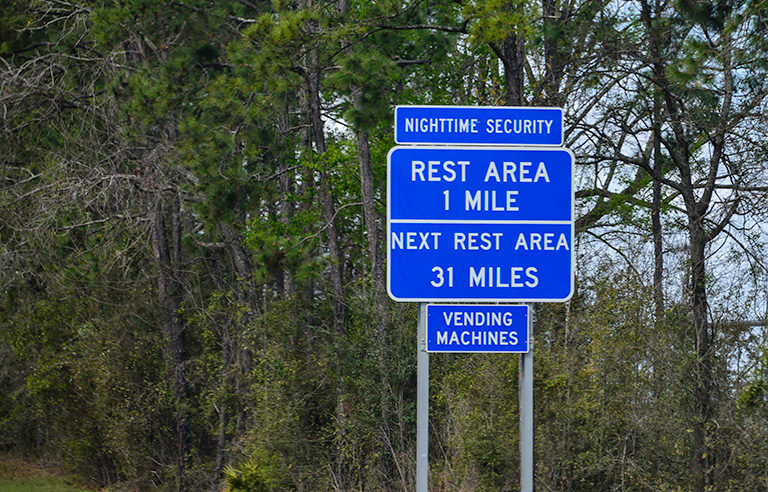Study links fatigue-related CMV crashes to distance from rest areas

Lexington, KY — Fatigue-related crashes among commercial motor vehicle drivers increase the farther the crash site is located from truck stops, rest areas and weigh stations with rest havens, according to a recent study from the University of Kentucky.
Researchers analyzed CMV crash data in Kentucky from 2005 to 2014 and found 7,538 incidents in which the driver was at fault. Of those, 284 involved fatigue. Limiting their analysis to interstates and parkways with at least one rest area, weigh station with a rest haven or truck stop within the KYTC Designated National Truck Network, the researchers found that driver at-fault crashes involving fatigue were nearly two-and-a-half times more likely to occur on roadways where the nearest rest options were located between 20 miles and 40 miles from the crash site. Crashes were nearly seven times more likely when the options were more than 40 miles away.
“Our results support the need for increased truck parking on the federally designated National Network for trucks, particularly on parkway routes,” the researchers said. “Existing rest areas should be expanded for additional truck parking and new truck rest areas should be established, particularly on parkways.”
The researchers also found a higher probability of CMV driver-at-fault fatigue-related crashes at night and on dry pavement, and that parkways were more likely than interstates to have fewer rest area options and more CMV driver-at-fault fatigue-related crashes.
“Implementation and evaluation of commercial vehicle employer policies and interventions such as the use of commercial vehicle driver fatigue alert systems, and driving schedules that allow adequate time for breaks and minimize nighttime driving, may help to reduce fatigue and sleepiness-based crashes in commercial vehicle drivers,” they said.
The study was published online Nov. 22 in Accident Analysis & Prevention.
Post a comment to this article
Safety+Health welcomes comments that promote respectful dialogue. Please stay on topic. Comments that contain personal attacks, profanity or abusive language – or those aggressively promoting products or services – will be removed. We reserve the right to determine which comments violate our comment policy. (Anonymous comments are welcome; merely skip the “name” field in the comment box. An email address is required but will not be included with your comment.)

